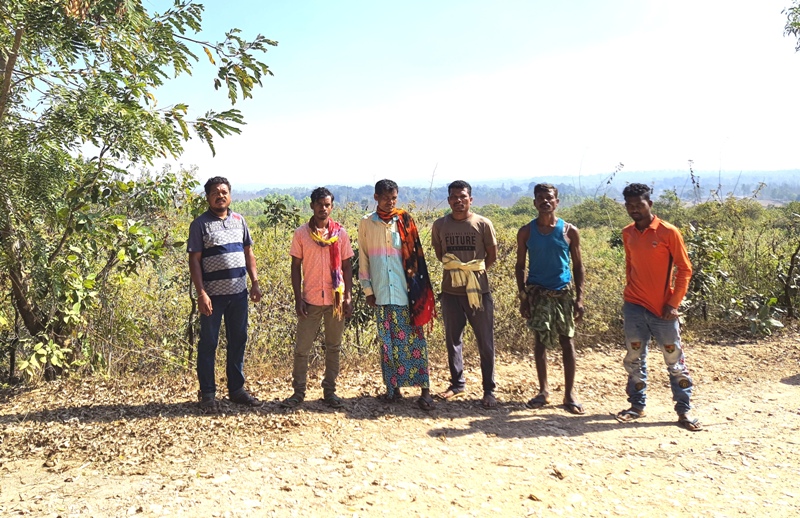Debi Mohanty
Bhagaban Khudupia, 33, Saheba Paraja, 29, Gobardhan Ghosoria, 45, Gara Bandia, 32 and Jayaram Patra, 29 can barely hide their joy. Nor do the rest of the residents of Kusumguda village under Lima panchayat of Koraput’s Kundra block.
The reason of their happiness: some rabbits, around a dozen bears and a few hyenas.
“We have spotted them many times. The moment these animals see us from a distance, they vanish. They are masters in the game of hide and seek,” says an excited Bhagaban pointing at the animal’s habitat: a young, yet, dense, thirty-odd hectare forest.
Fun apart, the animals have also done a favour to them. After five years of night vigil to ensure the safety of the trees, the villagers can now sleep, peacefully, at home.
“The bears and hyenas have taken over our responsibility,” Bhagaban and his fellow villagers claim.
However, in daytime, Parsu Durua, a native landless farmer, keeps a watch on the forest.
On a bicycle, he moves around the area, thee-four times, daily. His remuneration: 1.5kg rice and Rs 10 a year donated by each of the 165 families of Kusumguda.
Home to around 700 residents consisting of Paraja, Bhumia and Durua tribes and some SCs, Kusumguda boasts of a school up to Class VIII and an anganwadi.
The villagers say girls (15) outnumber boys (around 6) as far as college education is considered. Majority of the residents – small and marginal farmers – grows maize, millet, almost all types of vegetables and watermelons.
Depending on the availability of water, some also cultivate paddy. However, all of them share an emotional connect with the forest. There lies a fascinating story behind it.
According to them, they collected branches of sal tree — a necessity during tribal marriage — from forests around five km away.
However, a decade ago, the villages looking after the forests decided not to allow the privilege to outsiders. That forced Kusumguda residents to depend on other distant localities.
“It was a difficult and costly proposition. We wanted to address the issue, permanently,” recalls Bhagaban.
Following a series of discussions with the team members of Centre for Youth and Social Development (CYSD) an NGO working in and other villages of Kundra, they decided to try and develop a jungle in their own village.
“Besides assisting us in availing saplings from the forest department, CYSD also guided us from time to time. The Forest department too extended its support to us,” acknowledge Bhagaban and others.
Thus, six years ago, began the experiment on the rocky, barren patch, where existed illegal quarries run by outsiders.
On the face of the villagers’ combined, but peaceful opposition, the quarry business made way for a turnaround.
Today, trees of different types, sal, acacia, jackfruit, Indian plum (Jamun) as well as those having medicinal value like Indian gooseberry (Amla) crowd the entire patch.
They villagers say the types of saplings planted were based on indigenous knowledge, old timers experience and advice of the forest experts. Their next aim is to extend the green cover to further 12 acres adjacent to it.
According to CYSD’s senior program manager Ramesh Chandra Swain, 81 such new forests on 2,760 hectares have been developed by tribal villagers across Kundra, Boipariguda, Laxmipur, Narayanpatna, Bandhugaon and Dasmnantpur blocks of Koraput district.
“It’s a huge movement,” he says. The efforts have begun paying dividends. Gobardhan, who also runs a small shop, says the biggest noticeable change is the increase in water table.
He cites the examples of the Kurlu (river lying nearby) and the village wells. Not only drinking water scarcity is a thing of the past in Kusumguda, the residents also are able to grow vegetables round the year.
“Each family earns some amount by selling vegetables,” maintains Gobardhan. Bhagaban says, “The 20 very poor families in our village collect sal leaves, make plates and earn a livelihood.
In return, they clean the unwanted bushes in the forest. ” That’s not all. Kusumguda caters to the needs of other villages, though at a nominal fee, during marriage season. Life, seems have turned full circle for them.
PNN
